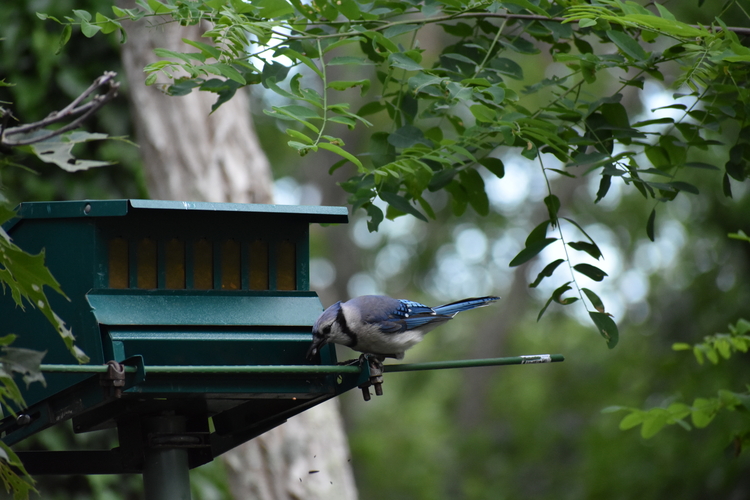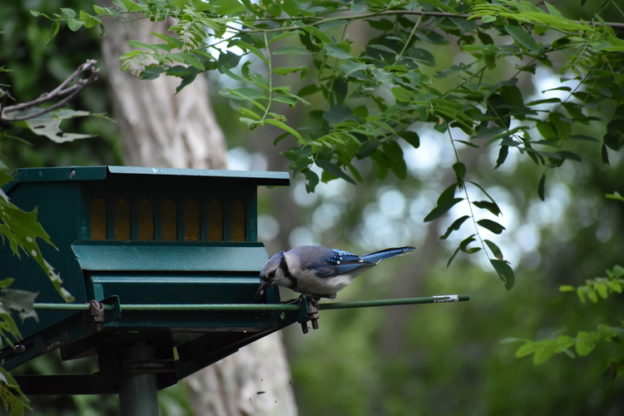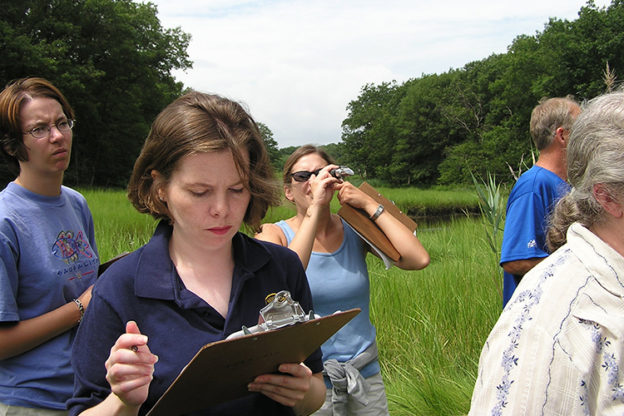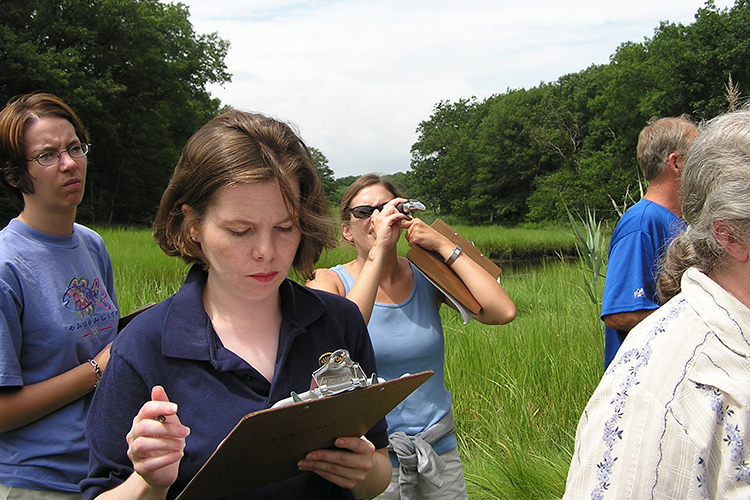Updated 7/20/21
Mass Audubon is in conversations with MassWildlife and other colleagues about the risk posed to Massachusetts birds by the ongoing avian disease outbreak in the Mid-Atlantic and Southeastern US.
While the disease has not been confirmed in any areas north of New Jersey, out of an abundance of caution Mass Audubon and MassWildlife have decided to recommend taking down bird feeders and birdbaths until the current outbreak is over. Birds can find plenty of natural food and don’t depend on bird feeders, especially during the warm season.

Here’s what to do now:
- Cease feeding birds (including hummingbirds) until this wildlife morbidity/mortality event subsides.
- Clean feeders and bird baths with a 10% bleach solution (one part bleach mixed with nine parts water), rinse with water, and allow to air-dry.
- Avoid handling birds unless necessary. If you do handle them, wear disposable gloves and wash hands afterwards.
- If picking up a dead bird, place an inverted plastic bag over your hand to avoid direct contact with the bird. To dispose of dead birds, place them in a plastic bag, seal, and discard with household trash or alternatively bury them deeply.
- Keep pets (including pet birds) away from sick or dead wild birds as a standard precaution.
Bird mortality is always a little higher during the summer, as a good number of fledglings sadly don’t make it past their first few months.
Please email reports to Mass Wildlife via this form and include your location, number and species of birds, symptoms observed, and any photos. We will continue to monitor the situation, so stay tuned for more information as wildlife biologists monitor the current outbreak.




